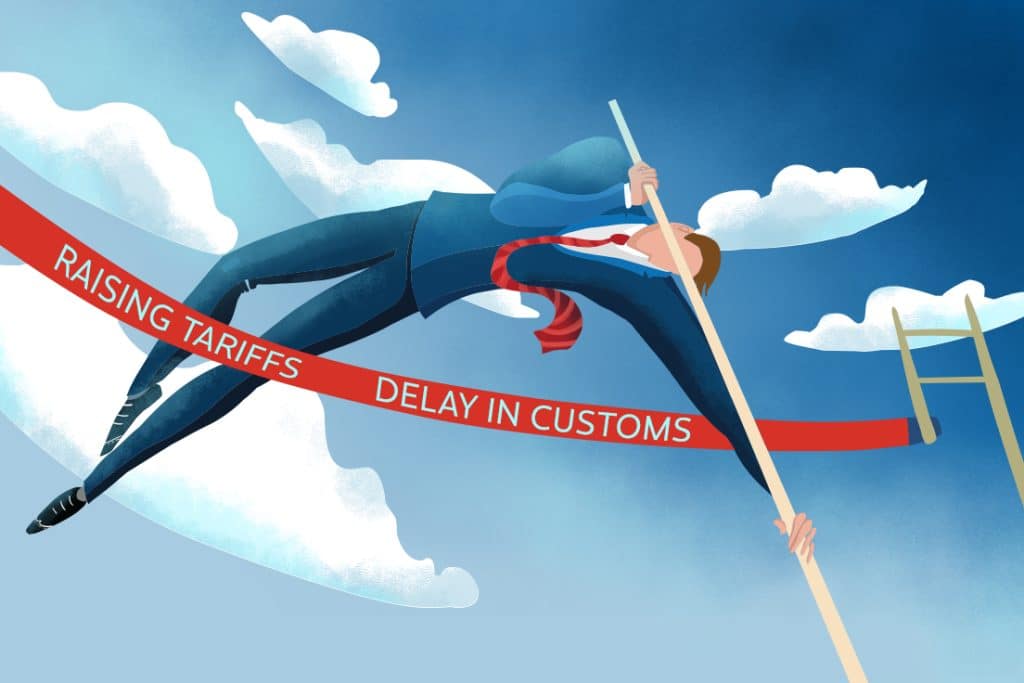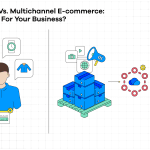
This summer, America and China are continuing to ramp up a multi-billion dollar trade standoff.
What started as a $34 billion opening round of tariffs between the two superpowers, quickly escalated to $200 billion.
There are now even threats from President Trump that all $505 billion of Chinese imports could be hit with new tariffs.
When two of the largest economies in the planet lock horns, it’s impossible for the global economy to escape the impact.
There are several ways the internet retail sector is particularly vulnerable.
As this trade war plows ahead with no clear end in sight, there are a number of impacts your e-commerce business may be forced to contend with.
How Will the US-China Trade War Affect the Supply Chain?
It depends. Smaller shipments sent by air from China are affected immediately.
If your business relies on flying in any of the targeted Chinese goods, you are already starting to foot the bill for the new tariff costs.
Alternatively, companies that rely upon high volumes of Chinese imports tend to receive goods on boats by the container-load.
This means approximately 20 days of transit time to the west coast or 30 days to the east coast (plus a week or more to clear customs).
It’s not quick, but it may also take longer for taxes on these types of orders to impact your bottom line—especially if you are still selling through inventory acquired prior to the new tariffs taking effect.
This is particularly relevant for many sellers as we at Sellercloud have recently seen a notable uptick in the number of customers opting for bulk, container imports rather than smaller shipments.
To account for this, we have recently added container management workflow functionality to make this style of bulk import purchasing more viable and easier for sellers to deal with.
Sellers can track extra third-party expenses like these tariffs (or any new ones) as a part of their cost of goods sold (COGS) calculations.
This means you can be sure that the costs are reflected correctly in the overall purchase order workflow.
Sellers can easily identify the true landed cost of their inventory and calculate accurate profit figures for each product sold.
Will the Tariffs Harm Your Domestic Sales?
The tariffs will certainly drive up the costs of imported Chinese goods and materials.
Traditionally, these higher costs are passed onto customers in the form of higher prices at check out.
Conventional wisdom in sales is that higher prices are never popular with customers.
When those higher prices don’t come with higher profit margins, they aren’t particularly popular with sellers, either.
That sounds awful, right? Not as much as you would think.
Remember, these tariffs are affecting all sellers and markets reliant upon Chinese trade, so it is probable that prices will increase across the board.
Time will tell, but customers will likely continue to buy as long as the US economy remains strong.
As long as you were competitive in your marketplace before the tariffs, you will likely remain so now.
What this does mean, though, is that domestic sales are likely to get a lot trickier—especially as the tariff rates continue to fluctuate.
Customs is not a speedy process in the best of times. It is common for customs bills to appear well after a particular product has already been received, marketed, and sold on to a customer.
This regularly adds a layer of ongoing flux for a purchase order’s COGS calculation.
This issue will become even more volatile (and commonplace) as the ongoing tariff escalations carry on.
Sellercloud accounts for these types of changes by allowing sellers to apply the accurate COGS expenses to each transaction, even after an order has shipped—an invaluable feature in the trenches of an ongoing trade war.
So now, when a whopper of a customs bill shows up after-the-fact, you can instantly apply it to the relevant purchase, recalculate the COGS, and update your profit calculations accordingly.
Will the Tariffs Lead To a Drop in US Sellers’ International Sales?
Given the nature of the Chinese response so far, American exports may quickly become prohibitively expensive for Chinese consumers.
The tariff tit-for-tat may aim to protect domestic economies, but sellers in both American and China that rely upon sales between the two nations are going to suffer.
Increased tariffs also tend to lead to increased regulatory activity at ports of entry.
This adds extra layers of red tape and processing time that will invariably lead to possible sale-killing delays.
Expect to hear about many more packages being held up in customs for inspections and/or the assessment of additional fees.
Over time, international customers who need or want their purchases in a timely fashion will likely start to consider other options for the extra degree of certainty – even if that means extra cost.
Broadening the scope beyond China, rising international anti-American sentiment and consumer-level actions like boycotts of American goods could also slow exports for American retailers.
Furthermore, China is just one of the many nations facing new American tariff provocations.
Canada, Mexico, and many European nations are also in the crosshairs.
All told, exporters are in for a rough ride as long as these types of trade wars continue to escalate and the current trend of American economic protectionism remains.
Sellers that prioritize international sales will need to pay close attention to these developments in the coming weeks and months and adjust accordingly.
That said, it is worth noting that Sellercloud data shows that international sales do not make up an especially large percentage of the sales conducted by most American e-commerce retailers.
For most online sellers, international orders may slow, but the impact shouldn’t be insurmountable as long as domestic sales remain strong.
How Will the Tariffs Affect Goods Sold Directly from Chinese Sellers to US Consumers?
A growing number of the top sellers in Americans’ favorite e-commerce marketplaces are originating from Chinese-based operations.
These Chinese sellers have been able to offer large volumes of low-priced products at paper-thin margins on some of the leading internet retail sites like Amazon, eBay, and Ali Express.
For US customers willing to endure longer shipping times, the savings compared to domestic alternatives can be dramatic.
At least these tariffs will change all that and help out the average American seller, right?
Unfortunately, not yet.
Normally, packages priced lower than $800 are exempt from duty, so they would be unaffected by the current tariffs.
The majority of the Chinese products sold to US consumers fall well below that threshold.If the US government is serious about leveling the playing field for domestic businesses and protecting the US marketplace from cheap knockoffs of American intellectual property (as has been the oft-stated intent), this may change.
The reality is, even with these new tariffs, the playing field still isn’t level.
A Chinese seller can typically sell a product directly from a local Chinese manufacturer to an American consumer at a lower cost than an American seller can domestically.
Add to that, the cost of an ePacket shipment from China to a US residential customer is dramatically cheaper than if a US seller used US shipping options to send the same package to a customer down the street.
It may not seem like it’s getting any easier to be an online retailer these days.
Between trade wars, revised internet sales tax rules, and even online marketplace policy shifts, the winds of change are blowing.
Don’t fret. Online retail will remain a profitable avenue for the foreseeable future, you just need the right partner to maximize your selling potential. Sellercloud has you covered.
Contact us directly to see how our platform can optimize your e-commerce business and ensure that you are always prepared for changes like these as well as any other shifts in the online retail landscape.




